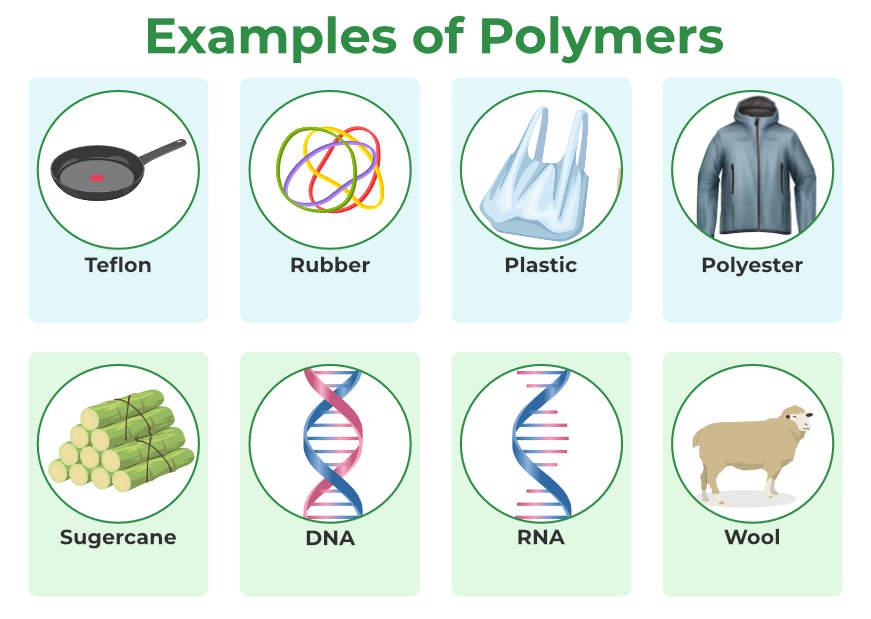Polymers in Building: Stronger, Less heavy, and More Long lasting
Exploring the Varied Applications and Advantages of Polymers in Different Industries
Polymers, with their varied series of residential properties and performances, have ended up being crucial in different industries, each reaping one-of-a-kind take advantage of their application. Polymers. From enhancing safety and performance in the vehicle field to reinventing medical devices in the health care market, polymers play a crucial duty. Their green nature is modifying the landscape of sustainability practices. As we explore the midsts of polymers in electronics, we reveal innovative developments, while their architectural honesty changes the world of building and infrastructure. The pervasive impact of polymers throughout markets is a testimony to their convenience and adaptability, shaping the future of numerous markets.
Automotive Market Applications
Polymers play an essential function in boosting the efficiency and durability of numerous components within the vehicle sector. These flexible products are thoroughly utilized in the manufacturing of different components, ranging from indoor elements to under-the-hood applications. One prominent use polymers in the automotive industry remains in the manufacturing of light-weight parts. By replacing standard steel components with polymer-based options, cars can achieve better fuel performance without compromising on stamina or safety and security.

Healthcare Industry Advantages
In various health care applications, the advantages of making use of polymers are commonly recognized for their diverse variety of advantageous residential or commercial properties. Polymers play an important function in the healthcare market due to their flexibility, biocompatibility, and cost-effectiveness. Among the main benefits of polymers in health care is their capability to be customized to specific demands, such as adaptability, resilience, and biodegradability, making them perfect for a wide variety of clinical applications.
Polymer-based materials are thoroughly used in medical tools, such as catheters, implants, prosthetics, and drug shipment systems, due to their biocompatibility and capacity to resemble natural cells. These products can decrease the danger of allergies or beings rejected, improving person safety and security and results. In addition, polymers are light-weight, making them ideal for wearable medical devices and ensuring patient convenience.
Moreover, polymers make it possible for the advancement of cutting-edge therapy approaches, such as hydrogels for tissue engineering and nanocomposites for targeted medication shipment. Their simplicity of processing and sterilization makes them necessary for keeping high standards of health in health care setups. Generally, the varied advantages of polymers contribute substantially to advancements in clinical technology and individual treatment.
Environmental Benefits of Polymers

Additionally, polymers can add to energy savings as a result of their light-weight nature. In sectors such as transportation, light-weight polymer products can help in reducing fuel consumption and greenhouse gas discharges. Furthermore, polymers can enable the development of energy-efficient items such as insulation products that improve energy conservation in structures.
Moreover, polymers play a crucial role in lowering water contamination. The use of polymer-based filtration systems can efficiently remove toxins and pollutants from wastewater, securing water resources and communities. Overall, the ecological advantages of polymers make them important possessions in advertising sustainability and environment-friendly practices throughout numerous sectors.
Polymers in Electronics and Innovation
Considering the enhancing demand for innovative and lasting solutions in modern industries, the integration of innovative polymer modern technologies in the realm of electronic devices and innovation has actually emerged as a pivotal strategy for driving performance and efficiency. Polymers have actually changed the electronic devices industry by enabling the production of lighter, much more adaptable, and sturdy electronic gadgets. From smart devices to medical tools, polymers play an essential duty in improving product design and performance.
One substantial benefit of polymers in electronics is their insulating residential properties, which aid shield fragile electronic components from ecological aspects and electrical disturbance. In addition, polymers are essential in the advancement of versatile displays, learn the facts here now wearable technology, and published electronics, supplying countless opportunities for developing wise and interconnected gadgets.
Moreover, the usage of polymers in electronic packaging has actually led to developments in miniaturization and thermal management, boosting the overall efficiency and reliability of electronic systems. As innovation proceeds to develop, the flexibility and adaptability of polymers browse around this web-site will definitely drive further advancement in the electronics industry, shaping the future of technology.
Role of Polymers in Construction and Infrastructure
The combination of advanced polymer products in construction and framework projects has actually transformed the means frameworks are made and built in modern-day times. Polymers use various benefits in the construction sector as a result of their convenience, resilience, and cost-effectiveness. One essential function of polymers in building and construction is their use in finishings and sealants, supplying protection versus environmental elements such as dampness, UV radiation, and corrosion. Furthermore, polymers are utilized in the production of lightweight and high-strength composite products, enhancing the structural stability of structures while decreasing total weight.
Moreover, polymers play an important duty in lasting construction techniques by allowing the growth of energy-efficient frameworks. Shielding products made from polymers aid regulate interior temperatures, minimizing the need for heating and cooling systems and ultimately lowering energy usage. Moreover, using polymer-based compounds in infrastructure jobs such as bridges and roadways enhances their longevity and decreases maintenance costs. On the whole, the incorporation of polymers in building and infrastructure displays their significant effect on modern-day design practices.
Conclusion
In conclusion, polymers play a critical duty in this contact form numerous sectors such as vehicle, medical care, ecological, electronic devices, and building. From boosting fuel effectiveness in lorries to improving medical tools, polymers supply countless advantages.